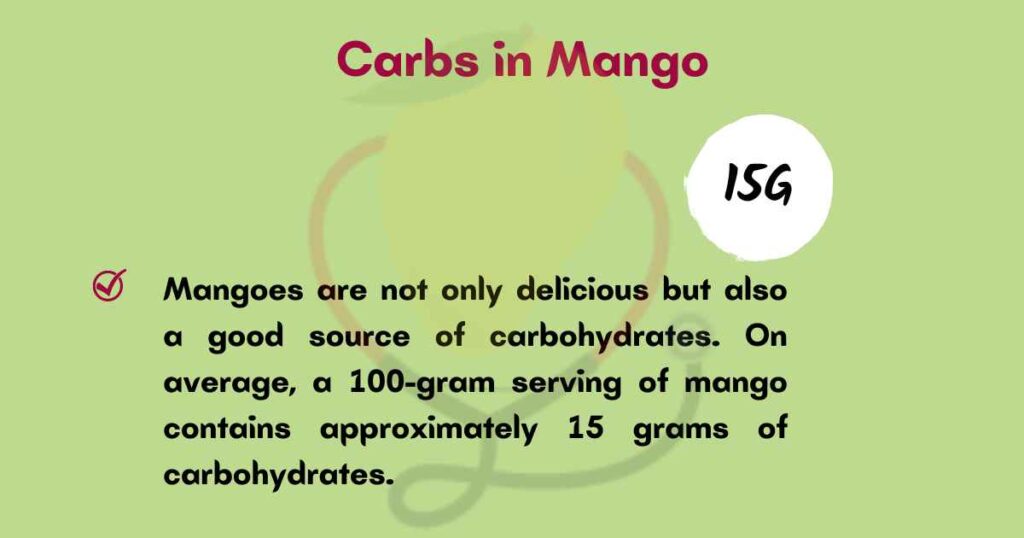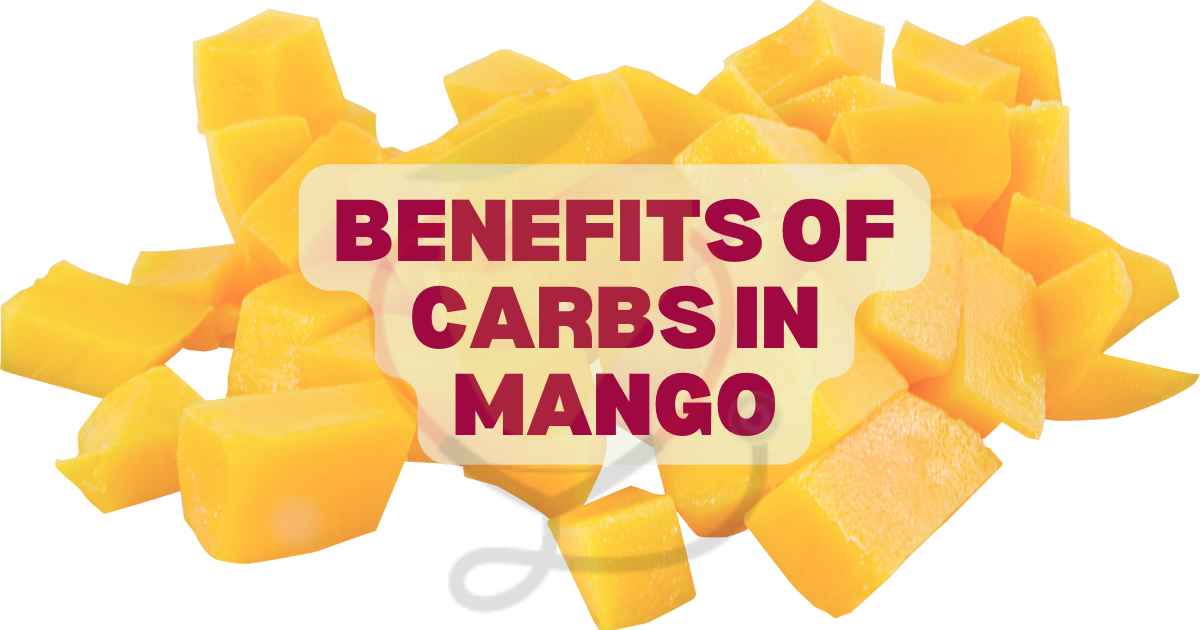Mangoes are not only delicious but also a good source of carbohydrates. On average, a 100-gram serving contains approximately 15 grams of carbs in mango. [1]
They are rich in vitamin A, [2] which promotes healthy skin and supports the aging process.
For every cup of chopped mango, you consume 25 grams of carbs and 99 calories.
Carbs in mango are one of the three primary macronutrients that our bodies need for energy, alongside proteins and fats.
They are organic compounds consisting of carbon, hydrogen, and oxygen atoms. Carbohydrates serve as a vital energy source, fueling various bodily functions and activities.
These carbohydrates are predominantly in the form of simple sugars, including sucrose, glucose, and fructose.

In this article, we will take a closer look at the benefits of Carbs in Mango.
Health Benefits of Mango Carbohydrates
The carbohydrates in mangoes offer several health benefits, making them a nutritious addition to your diet. Let’s explore some of these benefits: [3]
Energy Source
Carbohydrates are the primary source of energy for our bodies. The natural sugars present in mangoes, such as glucose, fructose, and sucrose, provide a quick and efficient source of energy. [4]
Whether you need a boost before a workout or an afternoon pick-me-up, indulging in a juicy mango can provide you with a natural energy boost.
Dietary Fiber
In addition to being a source of energy, mangoes are rich in dietary fiber. Fiber is essential for a healthy digestive system as it aids in proper digestion and prevents constipation. [5]
The fiber content in mangoes helps regulate bowel movements and promotes a healthy gut.
How Carbohydrates in mango Impact Our Body
Carbohydrates in mango provide energy, fiber for digestion, and essential nutrients. They can impact blood sugar levels, so moderation is advised for those with diabetes. Individual reactions may vary, so it’s best to consult a healthcare professional or dietitian for personalized advice.
Incorporate mangoes into your meals and snacks to enjoy their sweet and tangy flavor while reaping the benefits of their carbohydrates and other nutrients. Whether you indulge in fresh slices, add them to smoothies, or use them in various culinary creations, mangoes are sure to delight your taste buds and contribute to your overall well-being.
FAQs
Are mangoes high in carbohydrates?
Mangoes contain a moderate amount of carbohydrates. On average, a 100-gram serving of mango provides approximately 15 grams of carbohydrates.
Can mangoes help with digestion?
Yes, mangoes are a good source of dietary fiber, which aids in digestion and promotes a healthy gut. Including mangoes in your diet can help regulate bowel movements and improve digestive health.
Can mangoes be included in a weight loss diet?
While mangoes do contain natural sugars and carbohydrates, they can still be a part of a balanced weight loss diet when consumed in moderation. Their high fiber content can help you feel fuller for longer, potentially reducing overall calorie intake.
Can mangoes cause allergies?
Mango allergies are rare but can occur in some individuals. Allergic reactions to mangoes may manifest as skin irritation, itching, or respiratory symptoms. If you experience any adverse reactions, it’s best to consult a healthcare professional.
How can I select a ripe mango?
To select a ripe mango, look for a fruit that gives slightly when gently pressed. The skin color should be vibrant and have a sweet aroma at the stem end. Avoid mangoes with wrinkled or bruised skin.

